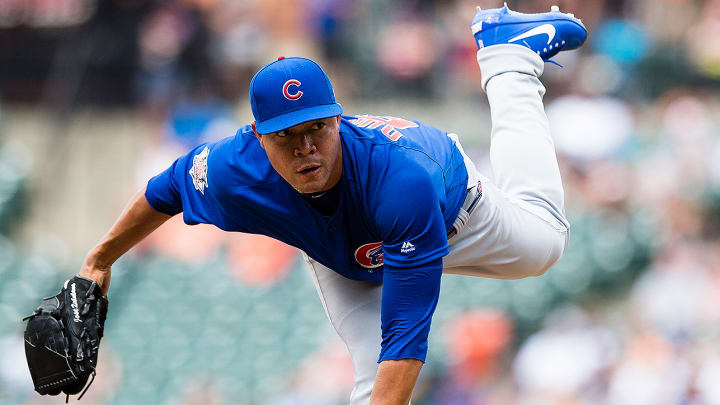11. Chicago Cubs (46–45, plus-16, LT: 12)

As Tom Verducci eloquently wrote in his book The Cubs Way, Theo Epstein and Jed Hoyer aimed to build a championship team around young, cornerstone offensive players like Anthony Rizzo and Kris Bryant. Their strategy for acquiring pitching help would be far more ad-libbed, with a combination of big spending when necessary, plus the hope of finding quality arms under rocks.
The problem with trying to buy low is that those kinds of needle-in-a-haystack pitchers tend to carry more risk than blue-chippers. Thus you have incredible finds like Jake Arrieta and Kyle Hendricks suddenly struggling this season ... not to mention big-dollar free agents John Lackey and Jon Lester shouldering their own share of lousy results. Add it all up and you had a Cubs rotation badly in need of quality arms, preferably younger pitchers with multiple years of controllable service time.
Come on down, Jose Quintana! It’s quite possible that the Cubs grow to miss the four prospects they sent to the White Sox in exchange for Quintana’s services, especially 20-year-old outfielder Eloy Jimenez. But Quintana checked all the boxes for the Cubs: A durable lefty who, other than a mysterious 11-start stretch at the beginning of this season, has been a metronome of strong performance going back to Opening Day 2013.
Quintana’s first start as a Cub following the trade? Pretty, prettyyyyy good. The 28-year-old southpaw annihilated a power-laden Orioles lineup in Baltimore, hurling seven shutout innings, allowing just three hits, walking none, and punching out a jaw-dropping 12 batters. It’d be pretty fun if Quintana rejuvenates the teetering Cubs and gets them back on the World Series track now, followed by Jimenez and friends forming the foundation of a perennial winner on the South Side in the early 2020s.
